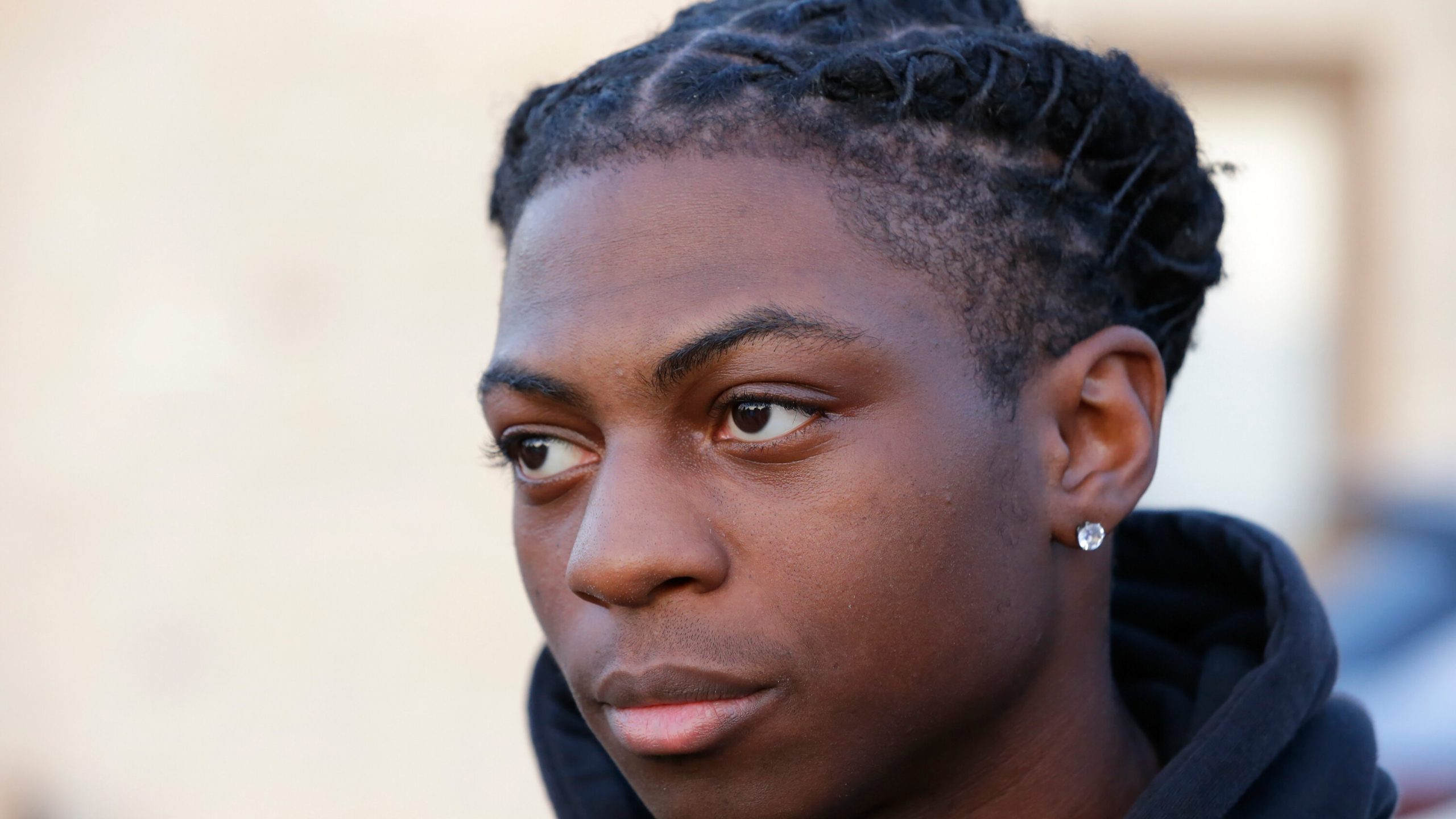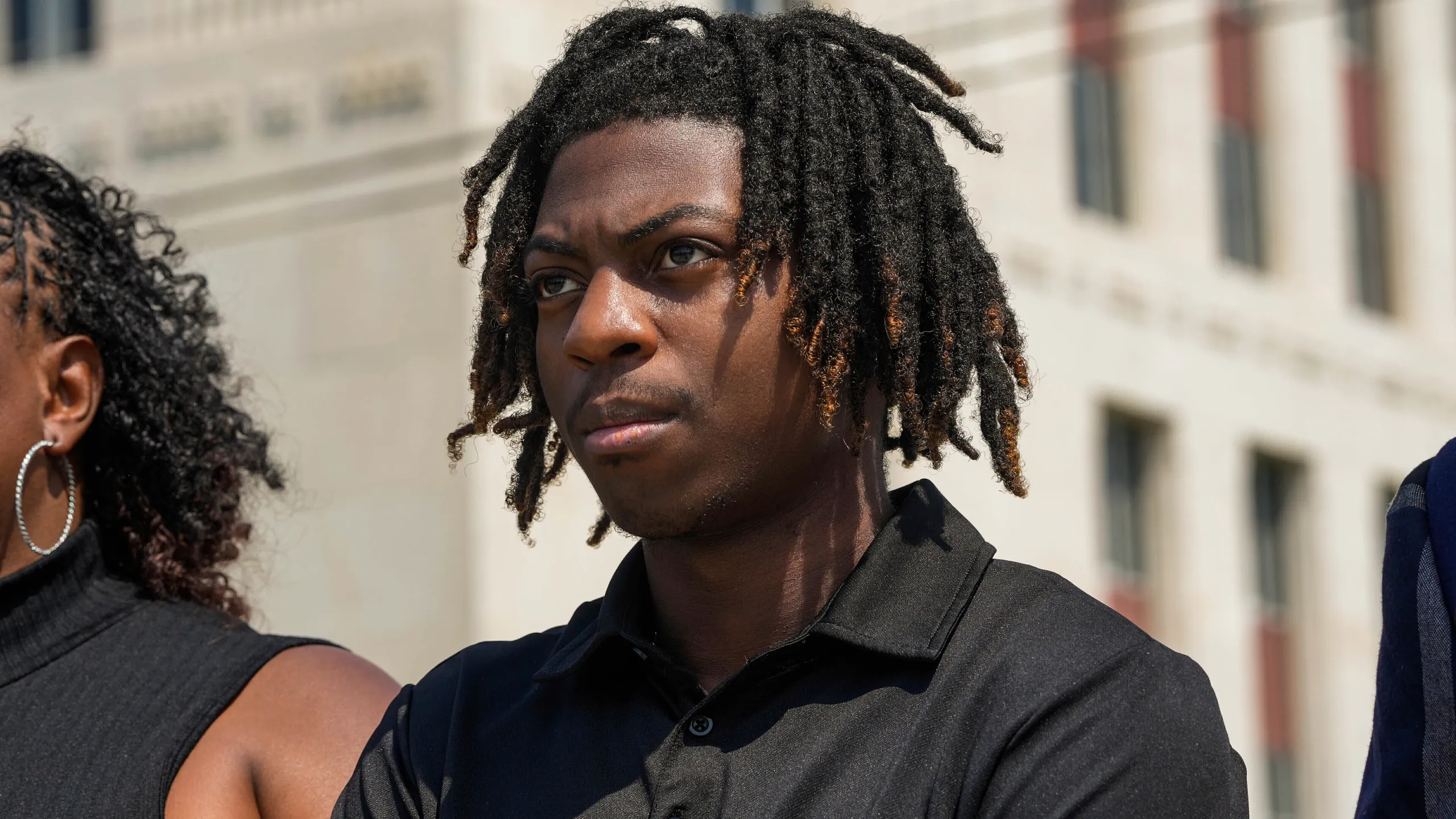On Friday, a federal judge denied a request from Darryl George, a Black high school student in Texas, for a court order that would allow him to return to school without fear of further punishment regarding his hairstyle.
George had previously left Barbers Hill High School in the Houston area at the beginning of his senior year due to ongoing disciplinary actions for wearing his hair in long, twisted locs. The school district argued that his hairstyle violated their dress code, which mandates that hair must not fall below the shirt collar, eyebrows, or earlobes.
George’s attorneys sought a temporary restraining order from U.S. District Judge Jeffrey Brown, hoping to prevent the district from punishing him if he returned while a federal lawsuit proceeded.
However, Judge Brown ruled against him, stating that George and his legal team had waited too long to make their request and that the school district was likely to prevail in the remaining claim of gender discrimination in the lawsuit. This decision coincidentally fell on George’s 19th birthday, underscoring the personal stakes involved in the case.

Federal Judge Denies Texas Student’s Request to Halt Punishment Over Hairstyle, Citing Delayed Legal Action
The case has sparked broader discussions about race and discrimination in school dress codes, as George’s legal action raised concerns about potential racial bias in the district’s policies. While the judge dismissed most of the claims in George’s lawsuit, he allowed the gender discrimination claim to move forward. This highlights the ongoing tension surrounding how schools enforce grooming policies, particularly regarding students of color and their cultural expressions.
Following his departure from Barbers Hill High School, George transferred to a different high school in the Houston area. His lawyers noted that he had suffered a nervous breakdown due to the stress of facing continued punishment over his hairstyle. The school district, in its court filings, argued that George lacked legal standing to request a restraining order because he was no longer enrolled in the district.
George’s lawsuit also references the CROWN Act, a state law designed to prevent discrimination based on hair texture and protective hairstyles. Despite his legal arguments, a state judge had previously ruled that the school district’s disciplinary actions did not violate the CROWN Act, complicating George’s case. This ongoing legal battle exemplifies the challenges faced by students asserting their rights and the significant impact that school policies can have on their mental and emotional well-being.











































